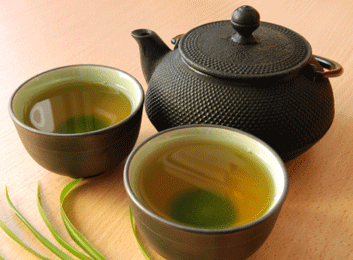
Longevity is in your hands
When we picture ourselves growing older, we might look to our parents or grandparents to give us an idea of how healthy-or not-we will be. But exciting new research is finding that our genes are not our destiny-not by a long shot.
A couple of recent examples: Even if you’re born with the genetic variant for high blood pressure-a condition that strongly predicts a shorter lifespan-lifestyle factors such as smoking and inactivity also have an effect on whether you’ll actually develop high blood pressure, according to a large, long-term study released in June from the University of North Carolina. And a joint 2008 study from the University of California and the non-profit Preventive Medicine Research Institute in Sausalito found that lifestyle changes such as regular exercise, relaxing meditation and a plant-based diet switched off cancer-promoting genes in men who had had prostate cancer, and turned on disease-prevention ones.
Here are 10 physical, emotional and social changes you can start making right now to help maximize your chances for a long and healthy life.

1. Swap, don’t drop the fat
Long-lived people don’t necessarily eat low-fat diets. In Canada, our average fat intake has dropped almost 15 percent in the past decade and yet obesity rates are soaring. “‘Reduce fat’ is not necessarily great advice,” says researcher David Buettner, author of The Blue Zones: Lessons for Living Longer from the People Who’ve Lived the Longest. The secret is to eat the right kinds of fat-not trans or saturated, but heart-healthy unsaturated and omega-3s.
Try this: Switch from butter to olive or canola oil. And a few times a week, swap meat for fish. Also, change up your crunchy cravings. Instead of eating crackers or chips, snack on a small handful of nuts such as raw almonds or walnuts. Aim to eat nuts four or five times a week. “We know that nut eaters outlive non-nut-eaters,” Buettner says.

2. Grow spiritually
People who attend regular worship services have lower rates of hypertension and lower mortality from cancer and respiratory, circulatory and digestive diseases. Is it the sense of deep meaning and peace? The built-in social network? The relinquishment of everyday worries to a higher power? No one knows, but research suggests that weekly attendance can add three or four years to your life.
Try this: Attend a religious service, or connect to music, art or nature. Try adding a spiritual layer to an everyday task. “While I’m doing the dishes, I’m thanking God for those dirty dishes,” chuckles 105-year-old Jean Holmes of Carleton Place, Ont.

3. Take a deep breath
A steady barrage of unrelenting stress causes inflammation that weakens cells, says Dr. Woodson Merrell, chair of the department of integrative medicine at Beth Israel Medical Center in New York, and a long-time advocate of daily meditation. “Stress hasn’t been shown to cause cancer, but it impairs the body’s ability to heal,” Merrell explains. A University of Calgary faculty of medicine study found that mindful relaxation caused beneficial changes to immune cells in cancer patients.
Try this: Make time for a two-minute “breathing break” every hour. Inhale for a count of four, pause, then exhale for six. Fifteen minutes twice a day of conscious relaxation with slow, deep breaths has been found to lower heart rate and blood pressure, decrease stress hormones and soothe the nervous system.

4. Do some good
Helping others helps you. “Stop saying, ‘Woe is me,'” says Merrell. “Stepping outside yourself and giving selflessly is incredibly life-affirming.” Seniors who volunteered for charitable organizations had more than a 25 percent decreased risk of death over the next four years compared to non-volunteers, even after adjusting for chronic illnesses and disabilities, according to a 2009 study from the University of California, San Francisco, and the San Francisco VA Medical Center. A 2007 study found that states with high rates of volunteerism also had lower rates of mortality and depression.
Try this: Do one act of kindness. Volunteer in your child’s school, take a meal to an ill neighbour, help out at your local animal shelter.

5. Sleep-but not too much
Too little sleep (consistently under six hours a night) raises your risk of car accidents, diabetes, obesity, depression and heart disease, according to the U.S.-based National Sleep Foundation. But interestingly, some research suggests that too much sleep-over nine hours-is also associated with more illness, accidents and death. “We know from huge epidemiological studies and from our own research that people sleeping seven hours a night live longer than people sleeping eight,” says Buettner. But many of those seven-hour sleepers also take a brief afternoon nap-a habit Buettner says lowers heart attack risk by 30 percent.
Try this: Set a consistent bedtime. Program your alarm to go off seven hours later, weekends included. And when you can, take a 20-minute afternoon nap.

6. Get moving
Something as simple as a brisk daily walk has a big impact. It helps control weight, lower bad cholesterol and blood pressure, ease symptoms of depression and delay dementia. It’s never too late to start: A 2008 Italian study based on data from the Aging and Longevity Study found that after adjusting for chronic illness, frail elderly seniors who walked at least an hour a day were less likely to die over the next two years than those who didn’t.
Try this: Skip the elevator. Make it a habit to take the stairs at work-not only is it healthy, it can be more efficient. On average, walking up or down one flight is twice as fast as taking the elevator, according to a 2007 study from the University of South Carolina.

7. Nurture friendships
A close network of supportive friends may help you live longer. A 2005 Australian study found that over a 10-year period, older people with close friends survived longer than those without. Interestingly, close relationships with children and other relatives didn’t affect survival rates. “We all need two or three really good friends-not Facebook friends or fair-weather friends, but people we can call when we’re having a bad day and they’ll care,” Buettner says.
Try this: Call a friend. As Buettner says, “Friends take effort. We need to invite them for dinner and remember birthdays.”

8. Take vitamin D supplements
We might think we’re getting enough of the sunshine vitamin naturally, but we’re not, especially at this time of the year. While sunscreen is essential to block out harmful ultraviolet rays, it also reduces our D synthesis. Combine that with weak winter rays, a lot of cloudy days and protective clothing, and Canada is a drastically D-deficient country. But ordinary vitamin D supplements seem to help lower total mortality rates from cancer, heart disease and diabetes, according to a 2007 meta-analysis of 18 independent studies from the International Agency for Research on Cancer in Lyon, France.
Try this: Pick up a bottle of vitamin D tablets. The optimum amount is still being investigated; Health Canada and the U.S.’s Food and Nutrition Board recommend that an adequate daily amount is 200 IU (International Units) from all sources up to age 50, 400 IU from ages 51 to 70, and 600 IU after that (a cup of fortified milk contains 100 IU). Many studies suggest that this is not enough, and some experts suggest 1,000 IU daily is optimum. But take care to never exceed 2,000 IU.

9. Think of the cup as half full
Optimistic women who expected good things had a 14 percent lower risk of dying from all causes (and 30 percent lower heart disease risk) than pessimists, according to a 2009 University of Pittsburgh study that looked at data from 100,000 women over eight years. Mistrustful, cynically hostile women had a 23 percent higher cancer death rate.
Try this: Be grateful. Instead of dwelling on what didn’t go right, think of three good things that happened today, no matter how small. Write them down. People who keep a gratitude journal feel better about their lives and are more optimistic about the coming week than those who write about their problems or about neutral events, according to research from the University of California, Davis, and the University of Miami.

10. Learn to love green-and white-tea
Coffee and black tea contain antioxidants, too, but there’s growing evidence that the antioxidants in green tea, and even more so in white, are especially effective at mitigating cell damage from oxidative stress and protecting against certain diseases, including breast cancer. Both contain properties that can also help lower the risk of heart disease and stroke. A 2009 U.S. study even found that oral supplements derived from green tea helped the appearance of sun-damaged skin.
Try this: Start by replacing one beverage-coffee or a soft drink-with a cup of green or white tea, and work up to three to five cups a day.
Related:
• 7 foods that help prevent heart disease
• 4 ways men can reduce diabetes and heart disease risk
• The best sources of vitamin D
